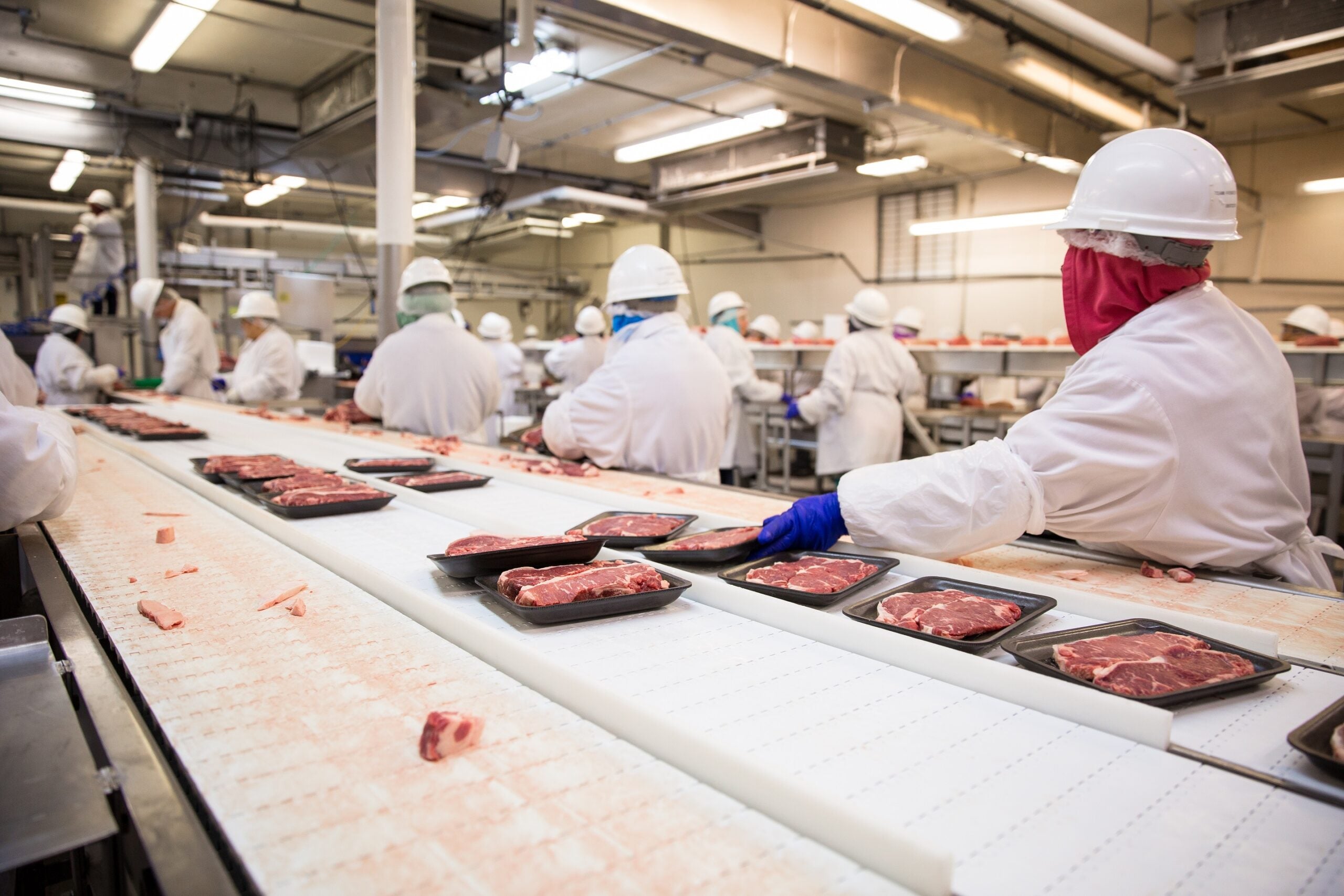
The British Meat Producers Association (BMPA) has argued the cost of finding staff is contributing to UK inflation and backed calls for the government to allow in more migrant workers.
Two weeks ago, an independent review into labour issues impacting the English food industry published a series of recommendations, including greater access to workers from overseas.
A spokesperson from the UK’s Department for Environment, Food and Rural Affairs (Defra) told to Just Food.that the government body recognises the importance of ensuring the industry can access the labour it needs on-farm and through the food supply chain.
“We are currently considering the recommendations of the Independent Review into Labour Shortages and will provide a government response in the autumn,” said the spokesperson.
In recent months, the UK government has been urged to take action to alleviate the pressure on the supply of labour, which has been cited as a factor in shortages on supermarket shelves and food waste.
In turn, UK Home Secretary Suella Braverman said parts of the food industry should look to employ more domestic workers.
Meanwhile, last week, a group of members of the UK’s ruling Conservative Party issued a plan to cut the country’s level of net migration.
The BMPA said its members would like to hire homegrown staff but insists the sector faces challenges in attracting employees. As well as giving companies the ability to hire more staff from abroad in the short term, the association called on the government and schools to support efforts to change the way working in the UK meat sector is perceived.
“It’s an inconvenient truth but many British workers, whether they’re ‘economically inactive’ or not, are either reluctant or physically unable to take up jobs in certain industries. Meat processing is one of those industries that struggles to fill vacancies from the local population,” Nick Allen, the BMPA’s CEO, said.
“This is partly a perception issue – which we’re working on – but the bigger and more intractable issue is the lack of geographical mobility and the physically challenging working environment, neither of which we can change, either for productivity reasons or for food safety reasons.”
Brexit, Allen argued, has had an impact on the UK meat sector’s ability to attract staff – and contributed to the rising cost of hiring workers.
“Just two of our members have committed a total of £10m ($12.9m) in the last 18 months to bring in the staff they need from abroad because suitable UK candidates are simply not available,” Allen said. “It’s an extra cost on top of wages that we never had before we left the EU. It’s also in addition to a near 20% rise in wages. And to stay viable, these costs are having to be passed on to consumers, stoking food price inflation and making British companies less competitive.”
